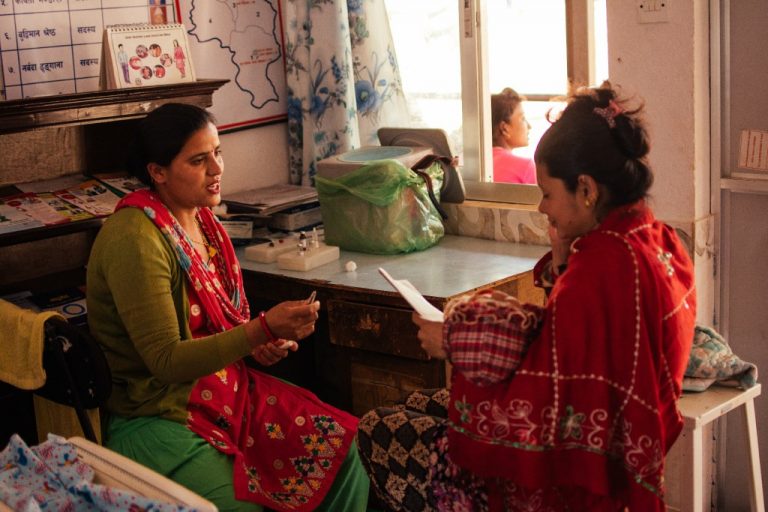Midwife Rita helped deliver Rupa and Rajkumar’s first-born daughter this year at the newly constructed Taruka health facility in rural Nepal, a facility Save the Children helped rebuild after the devastating 2015 earthquake. The proximity of a health post and availability of a skilled auxiliary nurse midwife helped save the newborn’s life. Even though Rupa had visited the health post often to ensure her pregnancy was proceeding, she was still anxious as her delivery approached. She had heard awful stories of women losing their lives during childbirth. But by delivering in a health facility with a skilled, well-equipped, and respectful midwife, both mom and baby survived childbirth and the days following without complication.
Rita’s story is just one of many we should celebrate today on International Day of the Midwife. However, there are other stories that won’t end as happily. Today, nearly 830 women will needlessly die giving birth, more than 7,200 babies will not survive childbirth or the last three months of pregnancy, and another 7,300 babies will die within the first hours and days after birth. That adds up to 303,000 women and 5.3 million infants every year whose lives are lost. Nearly all of these deaths could be prevented if high-quality services were available to every woman and baby everywhere.
And while 99 percent of these deaths happen in developing countries, rich countries like the United States are not exempt. Thousands of families suffer the tragedy of maternal and newborn mortality and morbidity every year in developed countries.
This week, US celebrity Jimmy Kimmel shared his emotional story about his son’s heart defect on national television and expressed praise and appreciation for the midwives who supported his family throughout the process. Jimmy said, “If your baby is going to die, and it doesn’t have to, it shouldn’t matter how much money you make.” This statement is no less true in low-income countries, especially those in sub-Saharan Africa and South-East Asia. And for marginalized populations, like those who live in hard-to-reach areas, and are victims of conflict and humanitarian crises.
No mother – anywhere – should have to risk her life or that of her baby by going through childbirth without the expert care of a midwife or other skilled birth attendant. Yet, globally, one in four women gives birth without such care. And 2.2 million give birth all alone. The World Health Organization estimated that in 2015 there would be a shortage of more than 3.5 million health workers – including a million midwives. This means that mothers and children have no one to diagnose and treat their illnesses, provide immunizations, or help them stay healthy.
The theme of this year’s International Day of the Midwife is Midwives, Mothers and Families: Partners for Life! Partnerships are central to midwifery. Midwives partner with women, families, and communities to provide lifesaving healthcare to mothers and babies, from before pregnancy to the first months after birth. They collaborate with doctors and facility staff to devise treatment plans and deliver high-quality, respectful care. They serve in government ministries and other decisionmaking bodies to make policy and funding decisions that ensure midwives have the resources they need. And they teach, mentor, and supervise to ensure midwives both practice what they know and learn new skills.
Ending preventable maternal and newborn deaths and stillbirths requires more qualified midwives, more empowered midwives, better resourced midwives, and more respect for midwives. How can we strengthen these partnerships? For one, we can listen to midwives’ voices. The upcoming Congress of the International Confederation of Midwives is another opportunity to engage with midwives to strengthen support of their work. I am making it a priority this week and in the coming weeks to listen to the voices of midwives.
If you are a midwife or want to recognize a midwife for her partnership for life, please write to the Healthy Newborn Network with your story and we will be sure to share it.
By Carolyn Miles, president & chief executive officer of Save the Children
Photo credit: ©Shashank Shrestha/Save the Children
